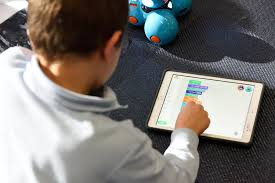What is the game of science? The Game of Science is educational as well as fun. It was developed by scientists using real scientific concepts and experiences. We wanted to share the excitement, adventure, and humor of the day-to-day life of a modern scientist. The game developers are also active in science outreach and education.
Can we use games to teach science? Games stimulates a deeper level of engagement around an idea and therefore a deeper level of understanding of that idea. Games also speed up the ‘fail, learn, grow’ iterative loop, and – most importantly – without the emotional weight of grades and tests. Those can come later.
What are good science projects for kids?
Science Experiments for Kids:
- Awesome Experiments: Explore Hundreds Of Fun And Easy Experiments.
- Storm In A Glass: Model A Rainstorm In A Glass.
- Snow Globe: Craft a Decoration using Viscosity.
- Jello Lenses: Glasses Formed of Jello.
- Dancing Hearts:
- Fizzy Fruit:
- Paper Hovercrafts:
- Balloon Pop!
How do you make science fun for kids?
- Getting kids to engage with science isn’t always easy, though. While they almost universally love getting stuck into experiments and practicals, the theoretical side can be trickier to master.
- Play with their food.
- Read all about it.
- Explore the great outdoors.
- Join a club.
- Encourage questions.
- Get messy.
What is the game of science? – Additional Questions
What is science fun activity?
Classic Science Activities:
Expanding Ivory Soap Experiment. 10-Minute Homemade Butter in a Jar. Coffee Can Ice Cream. Magic Milk Colour Explosion. Homemade Giant Bubble Recipe.
What are the top 10 science experiments?
The Top 10 Science Experiments of All Time
- Eratosthenes Measures the World.
- William Harvey Takes the Pulse of Nature.
- Gregor Mendel Cultivates Genetics.
- Isaac Newton Eyes Optics.
- Michelson and Morley Whiff on Ether.
- Marie Curie’s Work Matters.
- Ivan Pavlov Salivates at the Idea.
- Robert Millikan Gets a Charge.
How can we make science more fun?
6 Creative Ways to Make Science Lessons More Fun
- Get Out of the Classroom: Field Trip Galore.
- Go Outside In Your Playground Or Garden.
- Go High-Tech: Use Technology Every Day.
- Make it Experimental: Teach Fun Experiments.
- Fun and Games: Make Learning a Competition.
- A Fresh Perspective: Bring in Guest Teachers.
How can I make studying science fun?
Use it as a form of group study. Use club time to play scientific games, watch documentaries, and try different experiments.
Perform experiments.
- Work with a subject that is meaningful to you.
- Ask yourself “Why?” questions frequently.
- Follow the scientific method.
How can we make science subjects interesting?
For example, a spelling competition among students can make them learn vocabularies. For those doing the math, introduce a number of games to make them more interested in the subject. Games make the students happy.
They include:
- Pictorial illustrations of concepts.
- Better research.
- Playing educational games.
What makes science exciting?
Science is exciting.
Science is a way of discovering what’s in the universe and how those things work today, how they worked in the past, and how they are likely to work in the future. Scientists are motivated by the thrill of seeing or figuring out something that no one has before.
Who is the father of science?
Albert Einstein called Galileo the “father of modern science.” Galileo Galilei was born on February 15, 1564, in Pisa, Italy but lived in Florence, Italy for most of his childhood.
Why science is called science?
It originally came from the Latin word scientia which meant knowledge, a knowing, expertness, or experience. By the late 14th century, science meant, in English, collective knowledge.
Why science is important in our daily life?
It contributes to ensuring a longer and healthier life, monitors our health, provides medicine to cure our diseases, alleviates aches and pains, helps us to provide water for our basic needs – including our food, provides energy and makes life more fun, including sports, music, entertainment and the latest
What are 3 reasons why science is important?
Science is important for a variety of reasons including:
Increases our fundamental knowledge. Creates new technology. Dreams up new applications. A pathway to share ideas.
What is science in everyday life examples?
Science is involved in cooking, eating, breathing, driving, playing, etc. The fabric we wear, the brush and paste we use, the shampoo, the talcum powder, the oil we apply, everything is the consequence of advancement of science. Life is unimaginable without all this, as it has become a necessity.
What is the most important science?
1. Mathematics: the Most Popular Discipline among Students. Many people feel it correct to think that math is “the mother of all sciences.” When paying attention to the importance of particular subjects, nobody would argue the fact that math is one of the primary educational and scientific disciplines.
Which science is easiest?
Psychology is commonly thought of as the easiest of the science majors thanks to its relative lack of complex math, although psych majors can still expect to do a fair amount of statistical analysis on their way to a degree.
Which science is hardest?
Generally, physics is often deemed to be the hardest of all the sciences, especially as an A level qualification. Physics involves a lot of complex maths content – an aspect that most students struggle with.
What was the first science?
As has already been noted, astronomy seems everywhere to have been the first science to emerge.
Who created earth?
Formation. When the solar system settled into its current layout about 4.5 billion years ago, Earth formed when gravity pulled swirling gas and dust in to become the third planet from the Sun. Like its fellow terrestrial planets, Earth has a central core, a rocky mantle, and a solid crust.
What is the age of science?
Age of Science (2005) is a book about science in the 20th century by author and Egyptian-American scientist, and the winner of the 1999 Nobel Prize in Chemistry Ahmed Zewail.




